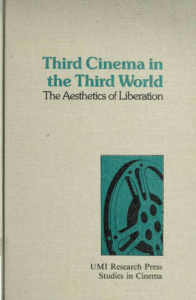
While accepting an Honorary Oscar this past November, the great film director Charles Burnett spent some time reflecting on his formative years as a film student at UCLA. It was there that he and his colleagues not only learned . . .

While accepting an Honorary Oscar this past November, the great film director Charles Burnett spent some time reflecting on his formative years as a film student at UCLA. It was there that he and his colleagues not only learned . . .

The closing of the era when comic art specialists, not people with PhDs, wrote the outstanding and recognized works on individual artists and genres may have arrived as recently as only a few years ago. Careful biographies of artistic giants, household names (in their own eras, at least) or famed only within the field, Al Capp or Will Elder, have continued to be written by people who could rightly be called “fans”—if the title did not seem insulting. Rather than university presses, Fantagraphics or the comics series at Abrams would be a typical outlet. With each year that passes and with each swelling enrollment in a college course, the scene shifts.
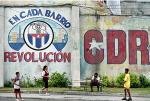
A civil society emerges, mainly, due to citizens’ need to actively involve themselves in the public sphere in order to address processes that impact their daily lives and affect their interests. At the heart of civil society, various social actors, with sometimes remarkable differences, group themselves around common issues that affect or interest all of them. Therefore, civil society is plural, characterized by the spontaneous organization of citizens and based on logics of autonomy, solidarity, and representation of specific identities; it is aimed at addressing collective demands, exploring solutions to issues that affect a given community, and having an impact in the public sphere.

The Work of Art in the Age of Mechanical Reproduction
Walter Benjamin was one of the great analysts of liberal capitalism during a time when its days seemed numbered and fascism was ascendant across Europe. Much of his work is taken up with looking at how the cultural products and processes characteristic of a civilization are reflective of the inner psychic and spiritual tensions roiling beneath the surface of hegemonic ideologies.
 [1]Djuena Tikuna during her performance at the Teatro Amazonas. Image: screenshot, Jornalistas Livres (Youtube)
[1]Djuena Tikuna during her performance at the Teatro Amazonas. Image: screenshot, Jornalistas Livres (Youtube)On 23 August, Djuena Tikuna [2] became the first indigenous singer to perform on the stage of the Teatro Amazonas [3] (“Amazonas Theatre”) — a bastion of European culture in the middle of the world’s largest tropical forest.
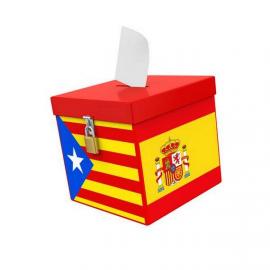
At the southern tip of Europe, stretching out its two hands of Ceuta and Melilla to reach Africa, Spain usually goes unnoticed. Our news hardly ever makes world headlines; it’s simply not impactful enough. Over the past month, however, my adopted homeland has been enveloped in one of the most controversial events of the decade, and finally our dirty laundry is being hung out to dry on the international clothesline. The threat of Catalonia breaking away from Spain is juicy. It’s the political equivalent of a marriage gone wrong, complete with steepled-finger scheming, mutual resentment, and fittingly, bouts of domestic violence. But it also serves to show how the choices and actions of politicians turn a prominent issue in need of discussion into a roiling turmoil. The question of Catalonian secession is the result of the thoughtless, petty political practice that is ubiquitous in governments around the world, but that should have no place in the future of governance.

This work is a creative nonfiction work which highlights the imperialist white supremacist capitalist colonial gaze of the Black male body, conventional beauty standards, systemic weightism, and instances of subversion against these oppressive norms in appreciating my body for the way it is.
 In a recent article from Politico, a new poll was discussed that suggests that nearly half, 49 percent, of Trump supporters believe that he won the popular vote in the 2016 election. (He didn’t; he lost by nearly three million votes.) Spurred on by Trump’s claims that millions (!) of people voted illegally in the election, this portion of Trump’s base have been lied to and misled by a politician they think they can trust. What are we to make of this?
In a recent article from Politico, a new poll was discussed that suggests that nearly half, 49 percent, of Trump supporters believe that he won the popular vote in the 2016 election. (He didn’t; he lost by nearly three million votes.) Spurred on by Trump’s claims that millions (!) of people voted illegally in the election, this portion of Trump’s base have been lied to and misled by a politician they think they can trust. What are we to make of this?
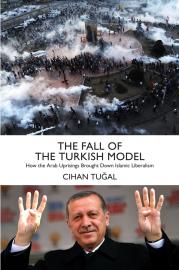
Cihan Tuğal, The Fall of the Turkish Model: How the Arab Uprisings Brought Down Islamic Liberalism (Verso, 2016).
In the short time since the 2016 publication of Cihan Tuğal’s The Fall of the Turkish Model: How the Arab Uprisings Brought Down Islamic Liberalism, Turkey has endured an attempted coup, nearly a year of rule under a state of emergency, the widespread repression of dissent through imprisonment and mass firings of teachers and civil servants, and a (likely fraudulent) referendum that has institutionalized the autocratic rule of President Tayyip Recep Erdoǧan. Yet, unbelievable as it may seem, these developments are part of a continuum rather than a rupture, and Tuğal’s book is essential—if not unproblematic—reading for understanding contemporary politics in Turkey, the Middle East and North Africa.

On the very off chance you haven’t heard, Angela Nagle has come out with her first book: Kill All Normies: Online Culture Wars from 4Chan and Tumblr to Trump and the Alt-Right. Best known for her essays, often on the alt-right, in outlets like Jacobin and The Baffler, the socialist left has been anxious to dive into what appears to be the first book on the alt-right written by one of us — myself included. Ms. Nagle first caught my attention last year with her incredibly insightful essay “The New Man of 4chan,” and I’ve been reading her regularly, and eagerly awaiting this book, ever since.
Reading, actually looking obsessively at the pages of, this volume and non-volume inevitably brings to mind an unpublished, uncompleted 1967 essay by Herbert Marcuse, “Lyric Poetry After Auschwitz,” translated and published after his death. Here Marcuse says, in part,
.jpg)
[This is the second of three articles commemorating the Russian Revolution of 1917 and analyzing its fate under Stalin. The first part, “Glorious Harbinger of a New Society: the Bolshevik Revolution,” was published in the previous issue of New Politics, number 62, winter 2017. The text below is slightly expanded from what appeared in the print issue.]
Soon after the Treaty of Brest-Litovsk was signed on March 3, 1918, the Soviet republic was under siege. Various anti-Bolshevik forces, some supported by the Allies or the Central Powers, were gathering. If these forces succeeded in reversing the October Revolution, what would be the result?
This video in honor of Joanne Landy was made at the request of Piotr Niemczyk, an activist in the 1980’s in the Polish independent peace group “Freedom and Peace.” It was shown at an event in New York City on June 1, 2017, honoring Joanne Landy.

At a distance of one hundred years, the Russian Revolution, which truly shook the world, deserves to be remembered once more in terms of its emancipatory significance and its downfall and betrayal. This revolution would not have happened had it not been for the crucial role played by the Bolshevik party. It is true that the profound crisis affecting the Russian society, worsened by the country’s disastrous participation in World War I, could have sooner or later led to a massive upheaval. But it is questionable that a socialist revolution would have taken place without the organizational skills of the Bolshevik party and the political, strategic, and tactical genius of V.I. Lenin.
Our last issue included a special section on “Russia: The Revolution and Beyond,” with articles by Thomas Harrison, Dan La Botz, Saeed Rahnema, and Stephen Shalom. In this issue, we continue with articles by Samuel Farber, Thomas Harrison (part 2), and Stefanie Prezioso, and an interview with Suzi Weissman.
 In the wake of the 2016 election, Oxford Dictionaries declared “post-truth” to be the 2016 international word of the year.[i] The viral spread of fake news stories (such as the infamous “Pizzagate”[ii] scandal alleging that Hillary Clinton’s campaign chair John Podesta secretly ran an illegal sex trafficking ring out of a Washington D.C. pizzeria) no doubt helped to install America’s lunatic POTUS and his clown car of white supremacist cabinet members into the Oval Office.
In the wake of the 2016 election, Oxford Dictionaries declared “post-truth” to be the 2016 international word of the year.[i] The viral spread of fake news stories (such as the infamous “Pizzagate”[ii] scandal alleging that Hillary Clinton’s campaign chair John Podesta secretly ran an illegal sex trafficking ring out of a Washington D.C. pizzeria) no doubt helped to install America’s lunatic POTUS and his clown car of white supremacist cabinet members into the Oval Office.
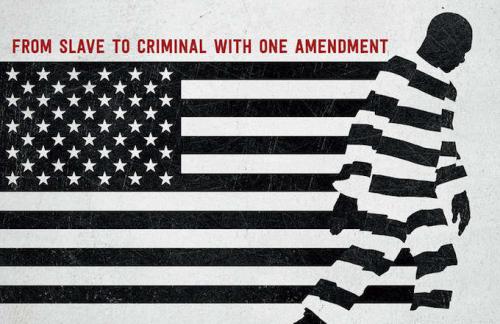
When prisoners in Alabama last spring proposed a national strike to protest “prison slavery,” they called out the infamous clause in the Thirteenth Amendment. The amendment most known for abolishing slavery included a rider that sanctioned slavery “as punishment for a crime wherein the party shall have been duly convicted.”
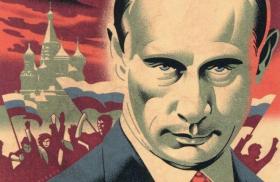 Michel Eltchaninoff. Dans la tête de Vladimir Poutine. Arles: Solin/Actes Sud, 2015. 171pp.
Michel Eltchaninoff. Dans la tête de Vladimir Poutine. Arles: Solin/Actes Sud, 2015. 171pp.
Michel Eltchaninoff’s prize-winning Dans la tête de Vladimir Poutine—In the Head of Vladimir Putin—is a fascinating examination of the development of the Russian president’s ultra-conservative and nationalist ideology from assuming the presidency in 2000 until today.[1] Eltchaninoff, the author of two books about Russian novelist Fyodor Dostoyevsky and many essays, might seem like an unlikely candidate to write an intellectual biography of the twenty-first century president Putin, but as it turns out, Eltchaninoff’s knowledge of nineteenth and twentieth century Russian philosophers makes him the ideal author, because that is where Putin’s ideas come from, Russia’s conservative, religious past.

Sometime in the late 1980s, as Against the Current was doing some cross-promotion with the European socialist magazine International Viewpoint, I was glancing through the list of U.S. subscribers to IV when a name jumped put at me: Connie Crothers.
This was interesting, because I had a wonderful duet recording “Swish” (1982) by jazz pianist Connie Crothers with the percussion giant Max Roach. (This was the inaugural recording of Connie’s New Artists label – an impressive debut!) I immediately wrote to Connie – this was back in the Middle Bronze Age, before we did everything by email – and soon heard back. Indeed, she was the same Connie Crothers and delighted to hear from ATC.
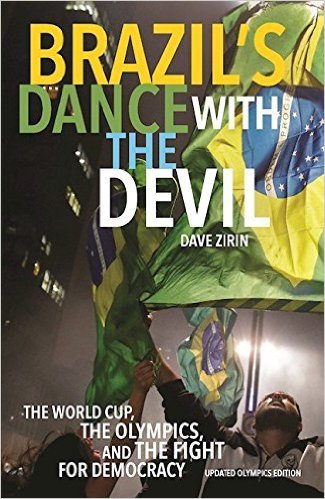
Brazil’s Dance with the Devil: The World Cup, the Olympics, and the Fight for Democracy. By Dave Zirin. Updated Olympics edition. Haymarket Books, 2016. 238pp. + notes and index. $17.95 paperback.
I celebrated with great relief back on October 2, 2009, when my hometown Chicago was the first city eliminated by the International Olympic Committee from consideration for hosting the 2016 games. The scale of the pillage, cronyism and social cleansing that “Mayor One Percent” Rahm Emanuel would have inflicted in the name of preparing for the party was horrible to contemplate. And I wasn’t wrong, as reporter David Haugh has shown in his piece of bidder‘s remorse, “In retrospect, losing 2016 Olympics to Rio a big victory for Chicago” (http://www.chicagotribune.com/sports/columnists/ct-haugh-olympics-spt-0803-20160802-column.html).